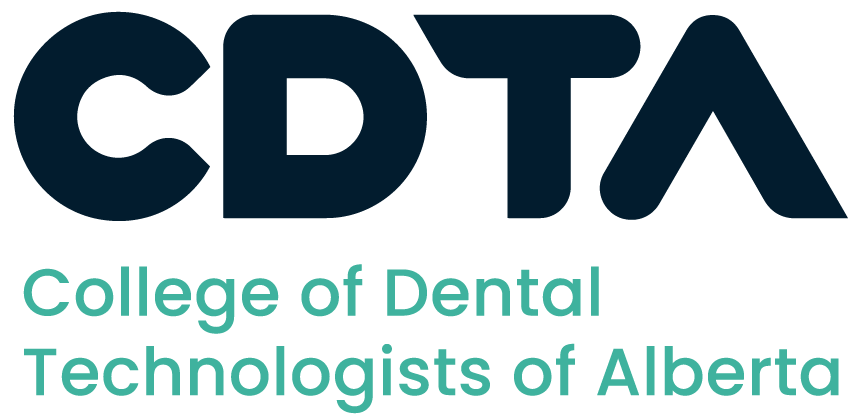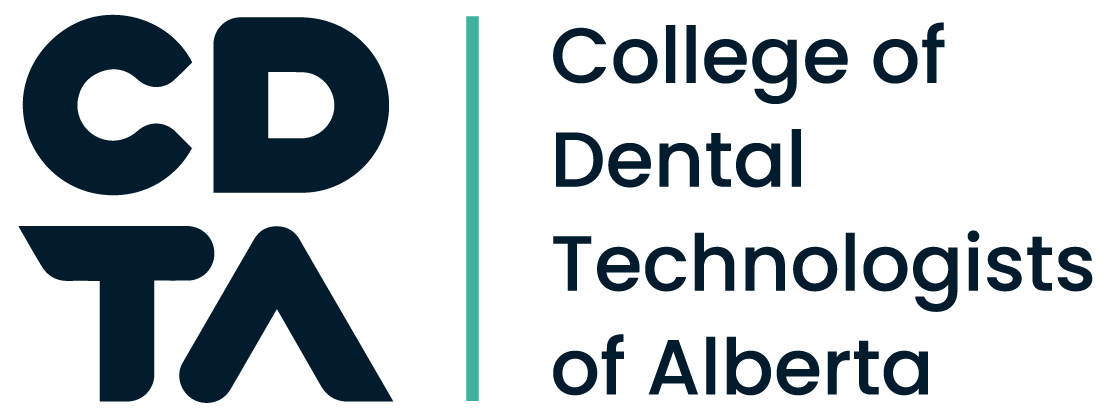
The College’s mandate is to protect the public by ensuring that Registered Dental Technologists and Registered Dental Technicians provide safe, ethical, and competent dental technology care and services.
Global trade and the development of novel technologies have provided Registered Dental Technologists and Registered Dental Technicians with the opportunity to source novel products, devices, and materials manufactured both in and outside of Canada.
The College of Dental Technologists of Alberta does not regulate medical devices, this advice to the profession is intended to provide information to assist regulated members in navigating the use, sale, and licensure of medical devices in Canada.
In Canada, medical device licensure is managed by Health Canada.
Medical Devices and Types of Licences
Medical devices are used in the diagnosis, treatment, mitigation, or prevention of a medical condition. They can include a variety of devices that Registered Dental Technologists and Registered Dental Technicians may encounter such as dentures, bridges, crowns, resins, denture coatings, prosthodontic appliances, artificial teeth, denture repair kits, and materials used in the fabrication of prosthetic and orthodontic devices and appliances.
Health Canada is the government agency that licenses medical devices. Although many medical devices may be cross-licensed in the United States by the FDA, medical devices must be licensed by Health Canada to be approved for use and sale in Canada. FDA approval does not imply approval by Health Canada.
There are two types of licenses issued by Health Canada.:
1. Medical Device Licence : licence for the medical device itself
2. Medical Device Establishment Licence : licence for the establishment (company) that manufactures a medical device.
Medical devices are categorized as Class I, II, III, or IV based on the risks associated with their use, including the degree of invasiveness, duration of contact with the patient, energy transmission hazard, and consequences of device malfunction or failure.
Quick Facts Links:
Medical Device/Establishment Licensure & Registered Dental Technologists and Registered Dental Technicians
The Medical Devices Regulation defines establishment licence exemptions for persons who are exempt from holding a Medical Device Establishment Licence (MDEL) under the Medical Devices Regulations to import into or sell a medical device in Canada.
Dispensers (as defined in section 1 of the Medical Devices Regulations) means a person who is a member of a professional governing body and who is entitled, by virtue of their membership in that body, to manufacture or adapt a medical device in accordance with a health care professional’s written directions in order to meet the specific requirements of a patient.
- Anyone importing or selling devices only for use by animals (the label of the device must state that it is for use by animals).
- Anyone importing or selling only medical devices subject to parts 2 and 3 of the Medical Devices Regulations, including:
- custom-made devices
- medical devices for special access
- medical devices for investigational testing involving human subjects (clinical trials)
Registered Dental Technologists and Registered Dental Technicians may be considered dispensers as defined in section 1 of the Medical Devices Regulations and may therefore be exempt from holding an MDEL to import or sell a medical device in Canada according to the Medical Devices Regulations.
The College's role and authority under the Health Professions Act is limited to regulating the practice of dental technology by its regulated members and does not extend to regulating businesses, including dental laboratories.
For questions regarding Medical Device or Medical Device Establishment Licensing in Canada specific to an individual business, dental laboratory, or other practice setting, Registered Dental Technologists and Registered Dental Technicians must contact Health Canada directly.

